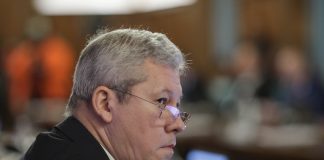The consequences of the exhaustion of medical professionals during the COVID-19 pandemic were „extremely severe,” Presidential Adviser Diana Paun stated on Friday at the Aspen Healthcare Summit, according to Agerpres.
„We all know that choosing a medical profession involves a series of sacrifices. There is no free time, the phone is constantly ringing, patients, the hospital calls on you at any time of the day or night. The World Health Organization draws a very important signal from this perspective and shows how important it is to see the doctor, first and foremost, as a human being, because, as I said earlier, the consequences in the area of post-pandemic burnout were extremely severe, it can be seen in the number of depressions, in the number of suicides registered among medical personnel, including in our country,” she pointed out.
The Presidential Adviser mentioned the regional report called „Health and the care workforce in Europe,” which presents 10 directions for intervention.
„We must be concerned with investing the physical and mental health of our workers,” Paun added. In this context, she mentioned a human resources plan from Healthcare.
„Unfortunately, until now, we sadly do not have a clear strategy that pursues the preparation and distribution of the workforce based on the mapping of needs at the national level and based on the exits from the system, but, as far as I know, currently, the Ministry of Health together with the World Health Organization is working on such a national plan. Moreover, the reform of human resources in Health represents a pillar in the PNRR [the National Recovery and Resilience Plan] for Health,” the Presidential Advisor added.
Agerpres




